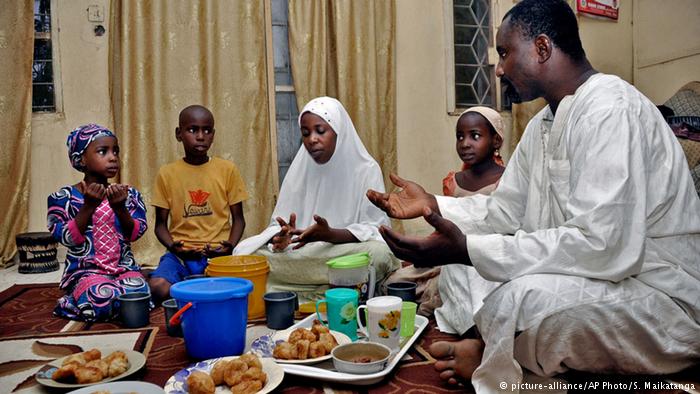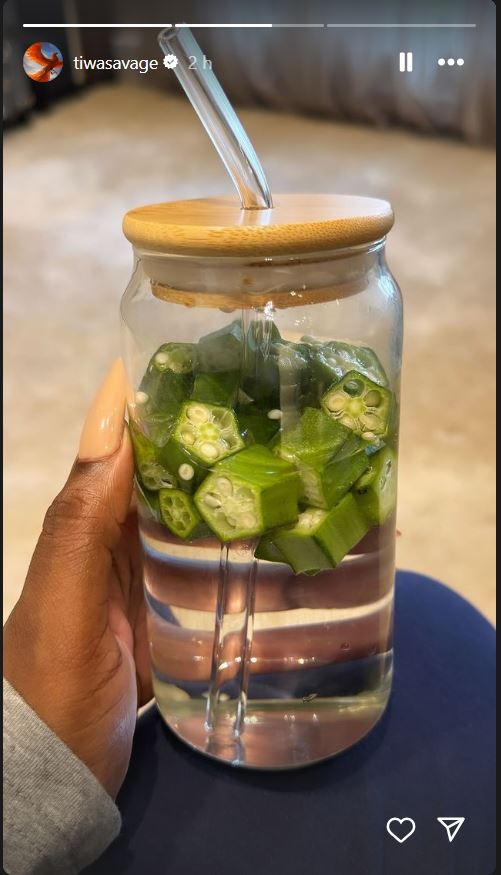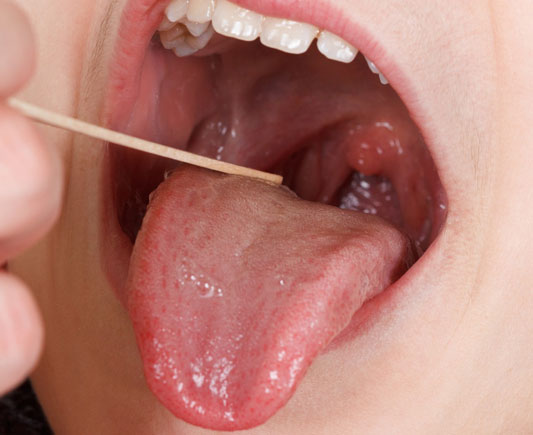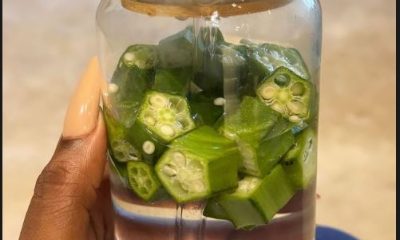Health
Six foods to avoid during Ramadan

The holy month of Ramadan is here. Following the sighting of the moon, Muslims across the globe commenced fasting from dawn to dusk on Saturday.
During this month, Muslims abstain from eating, drinking, smoking, and sexual relations from dawn to sunset, with the hope that it will lead to greater consciousness of God.
Fasting during Ramadan is known to have positive health benefits as it helps cleanses the body of harmful toxins.
However, taking unhealthy and unbalanced meals during Ramadan can lead to some health-related issues like excessive weight loss or gain, and heartburn, among others.
Without further ado, here are some of the foods Muslims should avoid during Ramadan (Sahoor and Iftar).
For Sahoor (food eaten at pre-dawn) you should avoid;
- Simple or refined Carbohydrates
White bread, white rice, and pastries, among others, should be avoided. These are foods that last only three to four hours in your body. The foods are also low in essential nutrients as they have been stripped off all fiber and nutrients your body will need for the day.
- Salty foods
Avoid foods that are salty during Sahoor. The human body regulates how much sodium it contains. If levels are too high, this makes you really thirsty while fasting.
Also, too much sodium in the body has been proven to be linked to kidney stones, cardiovascular diseases, and high blood pressure.
- Caffeinated drinks
Caffeinated drinks like coffee and espresso aren’t good to start your fast with. Excessive caffeine consumption has been shown to cause insomnia and restlessness so this isn’t a nice choice of drink during Sahoor.
Due to the long hours of staying hungry, some people tend to lose control of themselves while taking iftar — the evening meal after sunset– which might further affect their health.
Below are some foods you should avoid taking during Iftar if you really want to recharge and rebalance your body and energy.
- Carbonated drinks
During iftar, you should avoid processed beverages and drinks. Soft drinks as they are popularly called can cause digestion problems, dehydration, and diarrhea if taken during Iftar. So you should rather take enough water or fresh juices to soothe your thirst.
- High sugar foods
During this period, people just want to eat everything and anything they lay their hands on. Meanwhile, taking cookies, pastries, chocolates, or sweets during iftar can cause instant weight gain because they have high calories than nutrients.
- Fried foods
Greasy and fried foods should be totally avoided. Cut down on deep-fried foods as they cause indigestion, heartburn, and weight gain, and make you feel bloated.
Rather take grilled, baked, steamed, or shallow fried foods.
Fasting during Ramadan can improve one’s health — that is if done properly. So it’s advisable to have self-control during Ramadan in order to be able to choose only the healthy diet for both iftar and sahoor.
Health
Five benefits of drinking Okra water

Of recent, the trend of drinking okra water has gained traction backed with compelling evidence of its numerous health benefits.
In this article, we dive into the world of okra water and uncover five amazing key benefits of incorporating okra water into your daily diet, thereby unlocking the nutritional power hidden within:
Improved digestive health
Okra water is rich in soluble fiber, which aids digestion by promoting regular bowel movement and preventing constipation. It contains a gel like substance called mucilage that soothes and coats the digestive tract, reducing inflammation and easing symptoms of gastrointestinal discomfort. regular consumption of okra water can contribute to a healthier digestive system .
Weight Loss Management
Okra is low in calories and contains high fiber content, which can help make one fuller for longer . The soluble fiber in okra water helps increase feelings of fullness reducing appetite as well as unnecessary cravings. By including okra water into a balanced diet, individuals can support their weight loss goal in a sustainable manner.
Blood Sugar regulation
If you are watching your blood sugar levels or have a loved one doing so, this benefit of okra water would be really helpful as it tends to have potential benefits for blood sugar regulation. Okra contains soluble fiber, which can slow down the absorption of sugar in the digestive system, helping to stabilize blood sugar levels . By incorporating okra water into your diet, you may experience more consistent blood sugar levels and reduce the risk of complications associated with diabetes.
Heart Health Promotion
Okra is rich in nutrients like fiber, antioxidants and vitamins that contribute to a healthy heart. The fiber content in okra can help lower cholesterol levels, while the antioxidants can help reduce inflammation and protect against heart disease. However, it’s important to remember that okra water alone is not a magic solution. A balanced diet, regular exercise, and overall healthy lifestyle are key for promoting heart health.
Skin and Hair Benefits
Okra water contains vitamins and minerals, including vitamin C and biotin, which can indeed benefit both skin and hair health. Vitamin C acts as an antioxidant, helping to protect the skin from oxidative damage caused by free radicals, thereby promoting healthier skin. Biotin, also known as vitamin B7, supports the health of hair by promoting stronger, thicker strands. Incorporating okra water into your diet or using it in beauty treatments may provide a natural way to enhance the health and appearance of your skin and hair.
With this benefits of okra water stated, if you happen to be a naysayer to okra water, you should definitely think about its benefits.
Health
Symptoms, risk factors, treatment — what to know about throat cancer

On Thursday, Ogbonnaya Onu, a former minister of science and technology in the Muhammadu Buhari administration, died aged 72.
Reports suggest that Onu, who was the first civilian governor of Abia state, grappled with throat cancer before his demise.
If you came across the news, you may have wondered for a quick minute about throat cancer and maybe imagined how the symptoms would physically manifest. Perhaps you imagined a lesion or even a swollen neck.
What is throat cancer?
It refers to a type of cancer that develops in the throat, also known as the pharynx.
The human throat is a muscular tube that begins behind the nose and ends in the neck. The voice box sits below the throat and contains the vocal cords.
The two types of throat cancer are pharyngeal and laryngeal cancers, also known as cancer of the pharynx and the larynx.
What are the symptoms of throat cancer?
Symptoms of throat cancer include persistent cough, sore throat, a lump in the throat that does not heal, changes in voice, such as hoarseness or not speaking clearly, difficulty swallowing, ear pain, and sudden weight loss.
What causes throat cancer?
Throat cancer occurs when cells in the throat develop genetic mutations that cause them to grow uncontrollably. The continuous growth kills the normal cells. Then, the accumulating cells can form a tumour in the throat.
It is not clear what causes the mutation that leads to throat cancer. There are, however, factors that can increase the risk of throat cancer.
These risk factors include a family history of cancer, smoking and chewing tobacco, excessive alcohol intake, viral infections including human papillomavirus (HPV) and Epstein-Barr virus, and a diet lacking in fruits and vegetables.
How can one reduce the risk of having throat cancer?
While there are no scientifically proven ways to prevent throat cancer, there are ways to reduce its risk such as eating a diet rich in fruits and vegetables, drinking alcohol in moderation, avoiding smoking, and protecting oneself from HPV.
How is throat cancer diagnosed?
Throat cancer diagnosis involves a few steps. A physical examination will be performed in which a doctor will examine the mouth and throat.
The examination also involves a series of blood tests, while an endoscopy will be carried out.
An endoscopy is when a thin tube with a light on its end is inserted through the nose to look for abnormalities in the throat.
A chest x-ray and computerised tomography (CT) scan may also be carried out.
How is throat cancer treated?
Treatment of throat cancer will depend on the size of the tumour, whether it has spread all over the place, and the overall health of the patient.
The doctor will first need to find out what stage of cancer the individual has, that is, how far it has spread. This helps to determine the best treatment options.
Surgery may be recommended depending on the tumour size and chemotherapy may also be required.
Health
10 safety tips for boat rides

Water transportation, although a vital means of commuting, comes with its risks.
The recent unfortunate incident involving the Nollywood actor, Pope Odonwodo, known as Junior Pope, is a reminder of the importance of boat safety.
Pope, along with three others, lost their lives in a boat incident.
In a video posted by the late actor on his Instagram page on Wednesday, Pope, who was on a boat without a life jacket, told his followers to see how actors risk their lives to entertain them while pleading with the captain to go slowly as he shouted, “I have three children to raise.”
In the caption, he wrote, “See me lamenting… The risk we take to entertain you; crossing river 9ja yesterday with no life jacket… Na wahoooooo… Who does that ??”
The actor was reported to be travelling by boat away from a film set during the shooting of a movie titled, ‘The other side of Life,’ directed by Adamma Luke.
However, in response to the tragic accident, the Actors Guild of Nigeria, led by its President, Ejezie Rollas, suspended film productions involving riverine areas and boat rides.
Additionally, actors have been advised against participating in any project associated with Luke until further notice.
This incident highlights the need for stringent safety measures when traveling by water.
In this piece, we highlights 10 crucial safety tips for boat riders to ensure a safer experience:
- Wear life jackets: Always wear a properly fitting life jacket when onboard a boat. Ensure that there are enough life jackets for all passengers.
- Check weather conditions: Before setting off, check weather forecasts to avoid sailing in rough or dangerous conditions that could jeopardise safety.
- Follow safety instructions: Listen attentively to the boat operator or captain’s safety instructions and adhere to them diligently. Familiarise yourself with emergency procedures and the location of safety equipment onboard.
- Avoid overloading: Do not exceed the boat’s weight capacity or passenger limit. Overloading can lead to instability and increase the risk of accidents.
- Ensure proper boat maintenance: Regularly maintain the boat, including checking navigation lights, signaling devices, and emergency equipment like fire extinguishers and flares.
- Inform others: Let someone know your boating plans, including your route and estimated return time. This information can be crucial in case of an emergency.
- Be mindful of water conditions: Stay aware of water currents, tides, and potential hazards such as rocks or shallow areas. Navigate at safe speeds and exercise caution near shorelines.
- Monitor fuel levels: Always carry sufficient fuel for your trip and monitor fuel levels regularly. Running out of fuel in open water can be hazardous.
- Ensure children’s safety: Ensure that children wear life jackets and are supervised by adults at all times while onboard. Also, educate them about basic boating safety rules.
- Avoid alcohol and intoxicants: It’s crucial to refrain from consuming alcohol or other intoxicants before or during boat rides. Being sober enables you to make sound decisions and stay alert to potential dangers.
-

 Education7 days ago
Education7 days agoPrinting of JAMB slip: Beware of fake sites, police warn 2024 UTME candidates
-

 News1 week ago
News1 week agoJnr Pope: NIWA rescues 7, recovers two corpses, 3 still missing in Anambra boat mishap
-

 Business4 days ago
Business4 days agoX will start charging new users to post, says Elon Musk
-

 Entertainment3 days ago
Entertainment3 days agoJUST IN: Cubana Chief Priest pleads not guilty to naira abuse charge
-

 Entertainment1 week ago
Entertainment1 week agoAdanma Luke surrenders to police after boat mishap
-

 Entertainment1 week ago
Entertainment1 week agoHow Ghanaian Prophet predicted Actor Jnr Pope’s death in 2023 (Video)
-

 Entertainment3 days ago
Entertainment3 days agoCubana Chief Priest arrives court for naira abuse trial
-

 Health6 days ago
Health6 days agoFive benefits of drinking Okra water


















